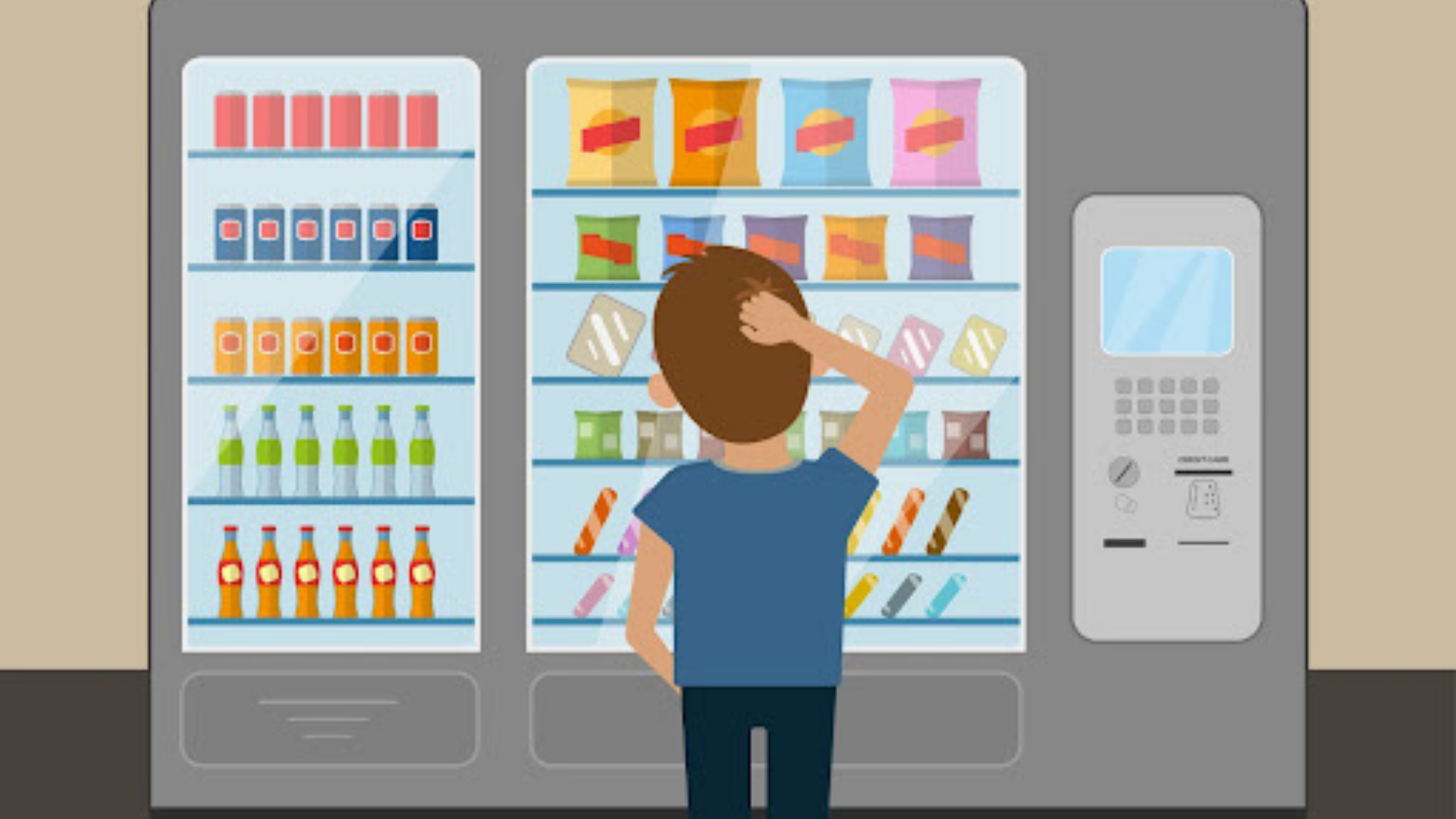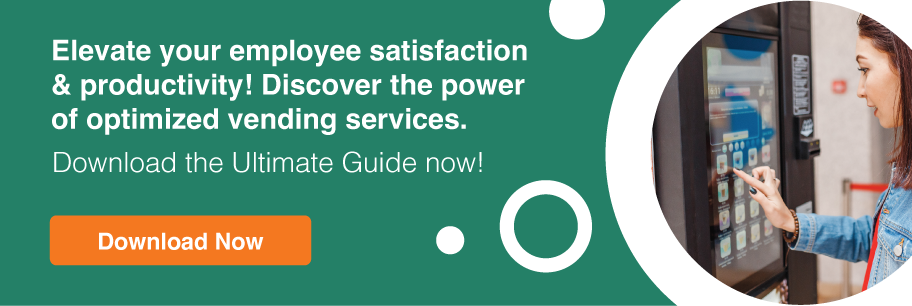
As a business, knowing where to start when incorporating vending machines can be confusing. Businesses have to choose between “self-fill” vending, i.e., owning their own machine and receiving 100% of all proceeds, or “full-service” vending where a company, like a vending management company, provides equipment and service on a regular basis. The main considerations between the two options are the costs and the profits. Do you want to purchase and maintain your own machine, or do you want free equipment and service? Vending machine servicing doesn't have to be tricky, it just depends on what you need.
What is Self-Fill Vending?
Owning your own machine, making all of the product decisions, and collecting the sales all have their perks, but it does require quite a bit of attention and effort. Vending machines come in a variety of designs and sizes, and a few of the options can be found in our vending machine size guide. There are also a variety of different products that can be stocked in a vending machine. For the sake of this article, and to fully compare the costs of self-fill vending to full-service vending, we will be looking at a glass-front machine, specifically a Coca-Cola – RVV 700, that will be stocked with Coca-Cola products.
Glass front vending machines can range anywhere from $3000 to $5000, depending on if the machine is new or refurbished, without shipping. When considering product selection for your machine, it is important to know the tastes and preferences of your typical customer. Glass front vending machines typically hold twelve to fifteen cases of product, and assuming we select a few standard Coca-Cola products, the initial stocking of the machine should cost somewhere around $250 to $400 dollars. This estimate is based on buying a variety of carbonated soda and juice/sports drink 20oz bottles directly from the Coca-Cola bottler. While some businesses choose to buy products from wholesale clubs, it can be tricky to find the 20oz bottles or the flavors needed.
Restocking and Maintaining Self-Fill Vending
Restocking and expired products are other aspects of self-fill vending that businesses have to consider. When a business owns its own vending, it is responsible for reordering and filling the machine on a regular basis. At that point, it is important to check the dates of the product remaining in the machine. Canned and bottled carbonated and non-carbonated beverages, like Coca-Cola, Pepsi-Cola, Diet Coke, VitaminWater, PowerAde, Gatorade, etc., have shelf-lives typically ranging from 90 - 120 days. Food products, if you are interested in a snack machine, might have an even shorter shelf-life. Depending on how often customers use the machine, products may not be purchased in time and may expire in the machine. The person stocking the machine removes the expired product, and they incur the loss. Similarly, the business is responsible for any mechanical issues or damage to the machine.
Restocking and Maintaining Full-Service Vending
Full-service vending, on the other hand, is hands-free. The operator provides equipment, ongoing service, and mechanical repairs all FREE OF CHARGE. In exchange for the business providing space and electricity to run the machine, the operator often pays a commission to the business based on monthly or quarterly sales. For businesses who want additional income and to offer vending without the hassle of managing it, full-service is a great option.
Revenue Considerations
There are many factors that determine how much revenue a vending machine can make, including but not limited to: the number of onsite employees and customers who use the machine, the location of the machine, the number of technical/mechanical issues with the vending machine, and the product selection offered. However, with self-fill vending, 100% of the revenue, whether it be a few hundred dollars to a few thousand dollars, goes directly to your business. Because the business bears the expense for the equipment, product, and service, it’s important to deduct those costs from sales to determine your true profit. Accounting for this additional revenue is another topic that is discussed in this Vending Group blog.
With Full-Service vending, those same factors impact revenue potential - the main difference is that instead of the business incurring the costs to manage the machine, the work is in the hands of an experienced operator who is often running software on the machines to track exactly when service will be needed. The operator bears the expense for the equipment, product, and service, so when the business receives their commission check, it is pure profit with no work.
Comparison
Now to compare the costs of self vending to full-service vending, for our glass front machine scenario, it would be the costs of purchasing the machine, shipping, stocking, and repairs to zero costs. This may seem false, but vending management companies install machines for no cost, stock machines for no cost, and even take care of repairs for no cost. Subsequently, the business that signed up for vending management will only receive a percentage of the commission earned from the machine. The amount of revenue your business will receive depends on the amount of business your machines get. The business still has control over choosing what type of machine they want at their location and what products to stock their machines with. To understand more about the process of using a vending management company, we have another article that gives a more in-depth understanding of the concept.


